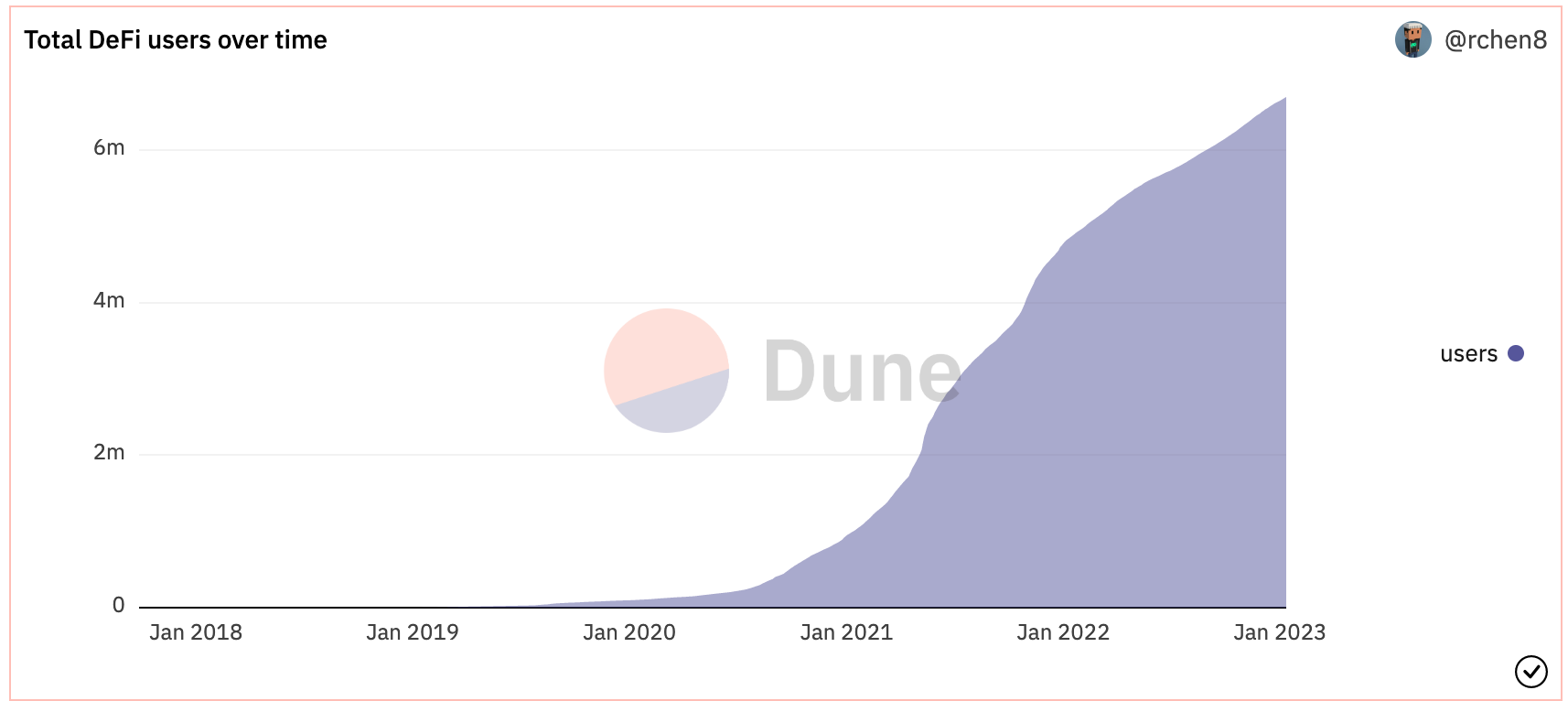What's in your DeFi wallet?

A DeFi wallet is like the connective tissue — or maybe a steel bridge — that allows people to move and store assets within decentralized finance (DeFi) applications.
For a quick explainer on what DeFi is and some of the main reasons why DeFi apps and products exist, be sure to check out What is DeFI?
DeFi makes financial services and products like borrowing, lending, and earning interest on digital assets more accessible and more cost effective.
The main distinctions between DeFi and the traditional financial system are:
- DeFi is permissionless. This means there is no third-party standing between the user and the service.
- While the lack of third-party opens access, it also means there usually aren’t things like customer service representatives, so make sure to double check things like wallet settings and take care to document your private key properly.
- Also, with DeFi, you have to take responsibility for your assets and manage your own wallet.
- Lastly, DeFi is built on computer code-enforced smart contracts that run atop specific blockchains that support smart contract functionality.
Two of the biggest attributes of decentralized finance (and one of the reasons why a good DeFi wallet is so important) is that DeFi is open and transparent. And, DeFi applications are largely customizable so that individual users can create a DeFi wallet and then start creating a suite of services that best match their specific financial needs and goals.
What makes a DeFi wallet, a DeFi wallet?
DeFi wallets have three main functions or components that make them suitable to interact in the wide world of decentralized finance:
- DeFi wallets are non-custodial. Since DeFi is decentralized by nature, then all DeFi services and apps, like wallets and exchanges are also decentralized. A decentralized wallet (or a non-custodial wallet) allows the user to hold their own private key, which is like a secret password that controls the assets in the wallet. This ability to self-custody assets is a huge advantage of DeFi over using centralized crypto exchanges and services. Centralized crypto services are more like traditional banks than they are like crypto-enable digital services.
- DeFi is transparent and open. Transactions that happen via DeFi wallets are broadcast and recorded to the underlying blockchain. One of the attributes of blockchain is that it is immutable, or censorship resistant. DeFi wallet details like a public address, transaction amounts, and date of the transaction are visible to anyone looking at transaction logs. The openness of financial transactions is unique and new for individual users, but it does ultimately help with things like accountability and fraud prevention for DeFi service providers.
- DeFi is customizable. No longer do financial products have to be a mass market one-size fits all. Since DeFi applications are built with open source computer code they can be changed and customized to fit needs and they can evolve with user preferences and needs.

As mentioned at the top, the thing that connects all aspects of DeFi’s utility is a good DeFi wallet. DeFi wallets not only store assets, but they also allow you to sign-in (or more accurately, connect) with DeFi services.
Some basic considerations for a DeFi wallet
- Pick the right wallet for the DeFi app or service you are trying to use: Make sure that the wallet you choose is compatible with the cryptocurrency assets you want to store and manage. Different wallets support different blockchains and DeFi platforms, so it’s important to make sure your wallet will work with the DeFi app you are trying to use. The good news? You can have multiple wallets to perform different kinds of DeFi activities. In some regards, having multiple wallets is also a good security practice. The only drawback is that it makes good wallet management practices even more important.
- Security: Since DeFi is still in the early days and a lot of its services are still experimental, there are a lot of security issues to be aware of. The biggest way to stay secure in the space is to maintain a secure wallet including securing your private key, using a unique password, and locking down 2FA procedures wherever possible.
- Make sure it works for you: A good DeFi wallet should be easy to use and do the things you want it to. The wallet space is heating up, with new wallets with more functionality and features coming out all of the time.
Usually the most time consuming part of DeFi wallet management is the initial setup. After that documenting your private key, you will likely get a walkthrough that includes verifying your identity and setting up wallet funding options such as connecting a bank account.